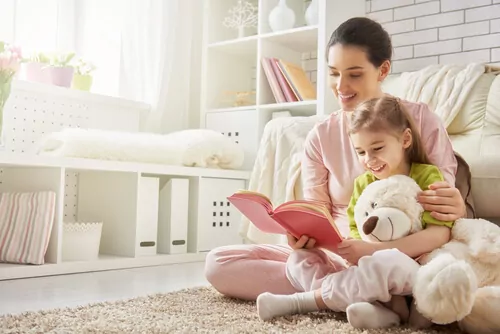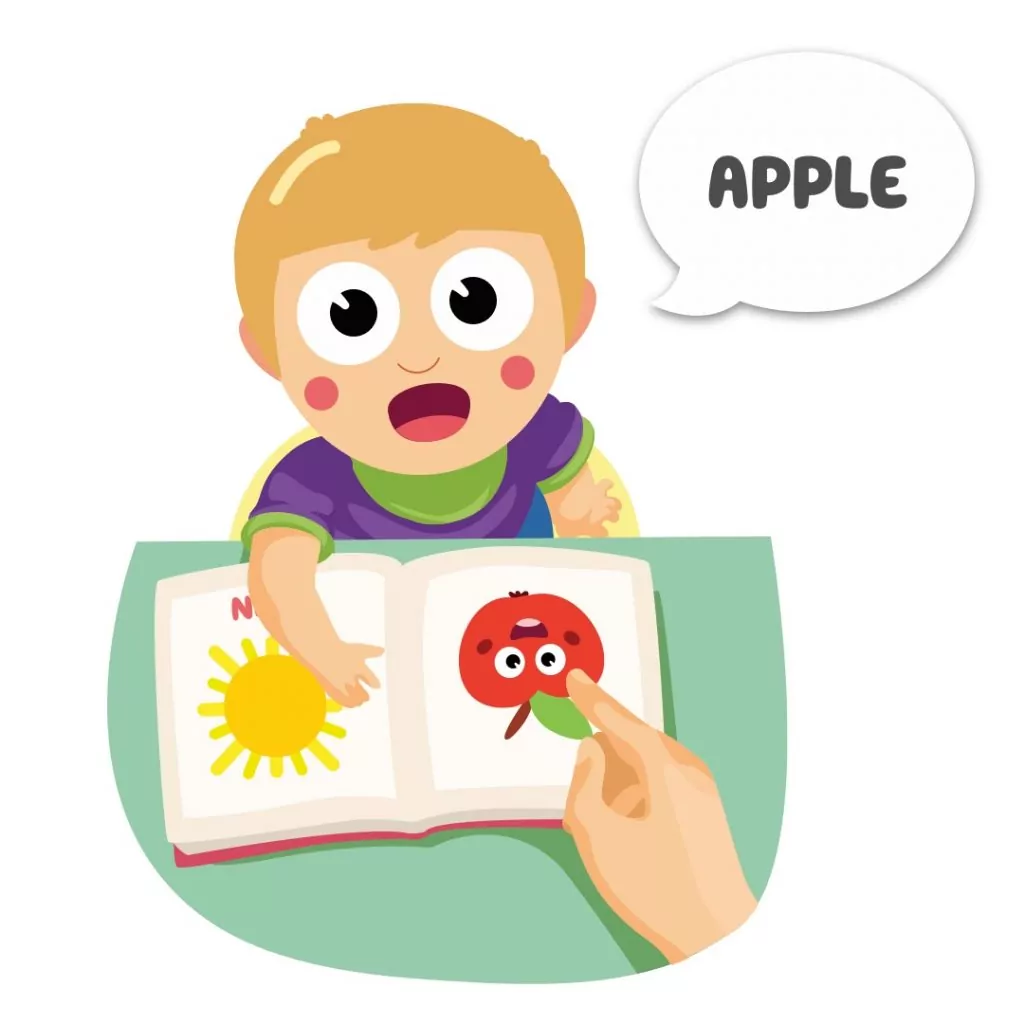Typical Speech Development: Vocabulary Milestones by Months
Jan 26, 2022 Getting feedback or results from a speech therapy assessment is often confusing for parents, simply because there are a lot of technical terms that speech therapists use to describe certain aspects of language and their associated disorders.
One of these words is “semantics,” which is merely technical jargon for “vocabulary.” But, what exactly is vocabulary?
Vocabulary refers to the set of words found in language that your child knows. Vocabulary can be split into two types:
- Receptive Vocabulary: Consists of the words your child understands when they hear or read them;
- Expressive Vocabulary: Consists of the words your child uses when they speak or write them.
Vocabulary develops as your child grows, and serves as both a useful and basic tool for communication and building knowledge.
Why is Vocabulary Important?
Simply put, vocabulary is the basis for learning a language. In fact, research has shown that a child’s vocabulary in the early grades is related to reading comprehension in the upper grades:
- Preschool – Children’s vocabulary is connected to reading comprehension in upper elementary school (Tabors, 2001).
- Kindergarten – Vocabulary size is an effective predictor of reading comprehension in middle elementary years (Scarborough, 1998).
- First Grade – Orally tested vocabulary was a good predictor of reading comprehension 10 years later (Cunnningham and Stanovich, 1997).
- Third Grade – Children with lower vocabulary have falling comprehension scores in later elementary years (Chall, Jacobs, & Baldwin, 1990).
As they develop, children typically understand or recognize more words than they use when speaking.
Vocabulary Developmental Milestones

0 – 6-Month-Old Baby
- Cries for assistance
- Makes more guttural or “throaty” sounds
- Coos single syllables and mostly vowel sounds
- Responds vocally to the speech of others
- Babbles strings of consonants
- Changes pitch, volume, and rate
- Imitates and experiments with tones and sounds
- Vocalizes and squeals in response to toys, pleasure, and displeasure
7 – 12-Month-Old Baby
- Plays vocally
- Produces several sounds in one breath
- Repeats emphasized syllables
- Produces distinct intonational patterns
- Imitates non-speech sounds
- Uses jargon
- Imitates adult speech if they can make the sounds
- Imitates tonal quality, inflections, and rhythms of adult speech
- Understand new words every month
- Speaks one or more words
- Understands approximately 50 words
- Mixes words and jargon
13 – 18-Month-Old Toddler
- Uses jargon and words in conversation
- Begins to use two-word utterances
- Has about a 20-word vocabulary
- Names some body parts
- Refers to self by name
- “Sings” and hums
- Plays question-answer with adults
- Repeats words heard in conversation
- More words are understood than are spoken
- New words are being understood at a faster rate
- Has a 4–6-word expressive vocabulary at the beginning of this stage and moves towards a 70-word expressive vocabulary at the end of this stage
- Has a 150–350-word receptive vocabulary
Boost Your Child’s Speech Development!
Improve language & communication skills with fun learning!

19 – 24-Month-Old Toddler
- Likes rhyming games
- Tries to “tell” experiences
- Uses “I” and “mine”
- Begin to combine words to uses short, incomplete sentences
- Has a 600 – 700-word receptive vocabulary
- Are adding approximately 70 new word meanings to their vocabulary every month
- Has a 200 – 300-word expressive vocabulary
3-Year-Old Toddler
- Creates three- to four-word sentences
- Plays with words and sounds
- Talks about the present
- Has a 900 – 1,000-word expressive vocabulary
- Will continue to add almost 70 new word meanings to their vocabulary every month
4-Year-Old Toddler
- Asks many, many questions
- Recounts stories and the recent past
- Has 1,500-word expressive vocabulary
- Will continue to add almost 70 new word meanings to their vocabulary every month
5-Year-Old Child
- Discusses feelings
- Has learned 90% of grammar
- Has a 2,100- to 2,200-word expressive vocabulary
- Will continue to add almost 70 new word meanings to their vocabulary every month
6-Year-Old Child
- Has a 2,600-word expressive vocabulary
- Has a 20,000- to 24,000-word receptive vocabulary
How to Encourage Vocabulary Development

Learning new words can be tricky, as there are lots of things that children have to be able to do to understand and say a new word and get it right. In fact, your child needs to:
- Remember the sounds they hear;
- Remember the order of these sounds;
- Put these sounds together to make a word;
- Understand what the word means;
- Work out where in a sentence the word goes to understand its full meaning.
Luckily, there are many things you can do with your child to help them build and develop their vocabulary.
The United States Reading Panel has the following suggestions when targeting your child’s vocabulary:
- Vocabulary should be taught both directly and indirectly;
- Repetition and multiple exposures to vocabulary items are important;
- Learning in rich contexts is valuable for vocabulary learning;
- Vocabulary learning should entail active engagement in learning tasks;
- Dependency on a single vocabulary instructional method will not result in optimal learning.
Bearing this in mind, here are some activities that you can do with your child to help their vocabulary development:

- Read to your child. A variety of books is best, and the more books, the better!
- Talk to your child about the environment around you and make sure that you use different settings to expose them to as much vocabulary as possible
- Encourage your child to tell you about their day. Ask them open-ended questions and prompt them if you can see that they are struggling
Play rhyming games. Children love nursery rhymes and sing-along songs
. . . and Some More Vocabulary Activities:
- Watch what your child is doing and say the name of the object or action. You can even encourage your child to perform a particular activity to target vocabulary that you know they are experiencing difficulty with
- Repetition is crucial, so make sure you say new vocabulary words a few times to help your child remember them
- Play developmental games that are centered around building childhood vocabulary
- Talk about how words are linked together and how they link to words they already know. For example:
- The words could be similar in meaning (tall, high, long)
- The words could be in the same category (cat, dog, hamster)
- There are different types of words and children need to learn them all, so you need to make sure that the vocabulary they are learning includes:
- Doing words/verbs (walking, swimming, jumping)
- Describing words/adjectives (big, heavy, red)
- Naming words/nouns (dinosaur, chair, juice)
That’s It! Just about any activity can be used for speech therapy, and in combination with the Speech Blubs App, you and your child will be able to have fun while doing so.
